Facts about earthquakes
During my fire service career, I have worked in Alaska, the state with the most seismic activity, California, the second most seismic state, Nevada, the third most seismic, and New Jersey, which ranks 12th in the nation for seismic activity. I have also worked in Japan, the most seismic country in the world.
Over the years, I have responded to major conflagrations, earthquakes, tsunamis, floods, hazardous material spills, typhoons, and hurricanes. I have learned a lot from all these experiences and would like to pass some of that on to you.
Earthquakes in Churchill County
The earthquake last week shook some people up (pardon the pun). Back on July 6, 1954, a 6.6 magnitude earthquake shook the Fallon area, damaging concrete buildings and even injuring a few people at the Fallon Naval Auxiliary Air Station. Drainage ditches and canals were damaged, and some paved roads cracked and buckled. The damage was estimated to be a few million dollars. A few months later on December 16, 1954, a bigger quake with a magnitude of 7.1 hits and within minutes, a second magnitude 6.8 quake shook the small town of Fallon, which back then was only sparsely populated.
There are steps you can take to mitigate the potential damage of an earthquake. Here’s a list you should be aware of due to our area’s propensity for quakes.
Steps to take before an earthquake
Place large and heavy objects on lower shelves.
Fasten shelves and tall furniture to the wall.
Strap your hot water heater to the wall.
Store chemicals and pesticides in a secure cabinet or shed.
Know how and where the shut-offs are for electricity and all utilities, have a tool close by to shut off utilities.
Have a family disaster kit with at least 3 days of food and water.
Make or purchase a First Aid kit.
Have an escape plan and practice it.
Have a Fire Extinguisher.
Don’t let your vehicles get below half a tank of gas or diesel.
During the catastrophic 1989 San Francisco earthquake, we could not communicate with anyone in the Bay Area due to an overload of the system, but long-distance calls could be made back and forth. Should something similar occur, have a friend or relative to call and relay information if possible.
Steps to take when an earthquake occurs
Stay Calm
Drop down and take cover under a table or desk.
If you’re inside, stay inside until the shaking stops. Then exit, be aware of live electric wires that could be down, gas mains, and propane that may be leaking.
If you’re outside in a car stop and remain inside. Stay away from buildings and watch out for falling objects.
Stay away from windows.
If you’re in bed stay there and hold on
Steps to take after an Earthquake has occurred
Check your home or business for damage such as fires and gas leaks.
Rescue family and friends who may be trapped or injured.
Do not move severely wounded unless the area has become unsafe.
Listen to the news. It is a good idea to have a battery-powered radio.
Open all doors and closets with caution due to falling objects.
Stu served as the Cheif at Fed Fire onboard Fallon Naval Air Station for five years and is retired in Fallon.

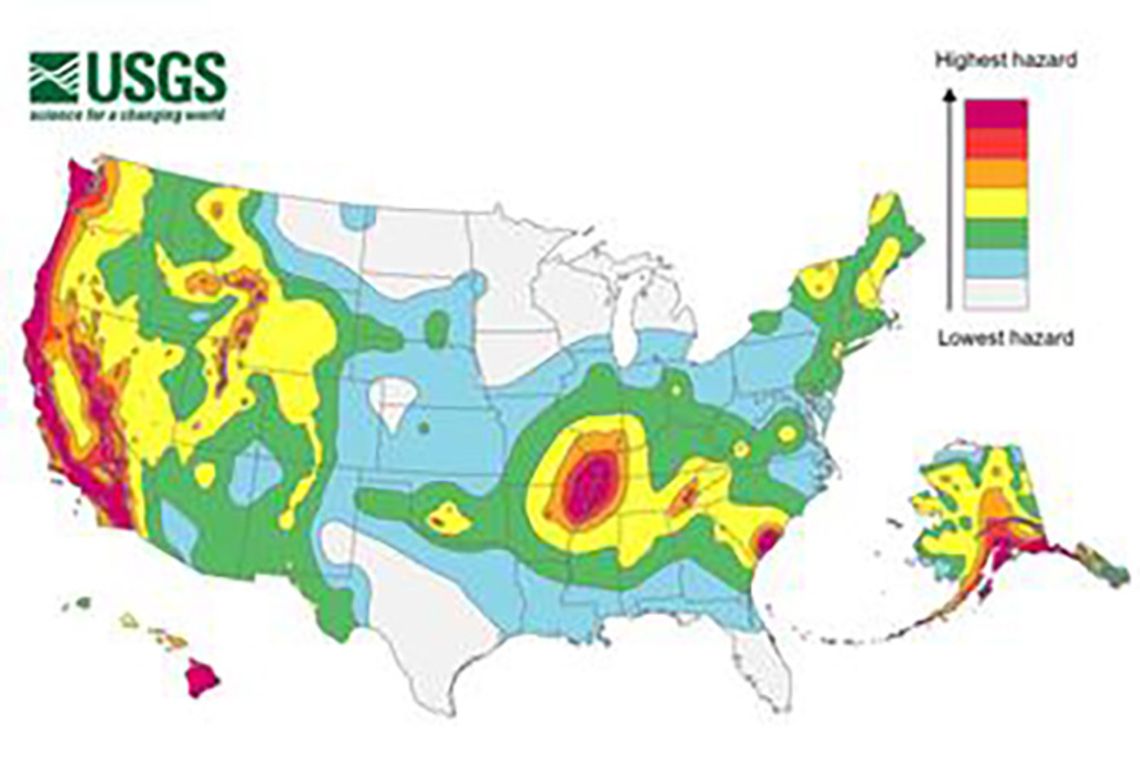
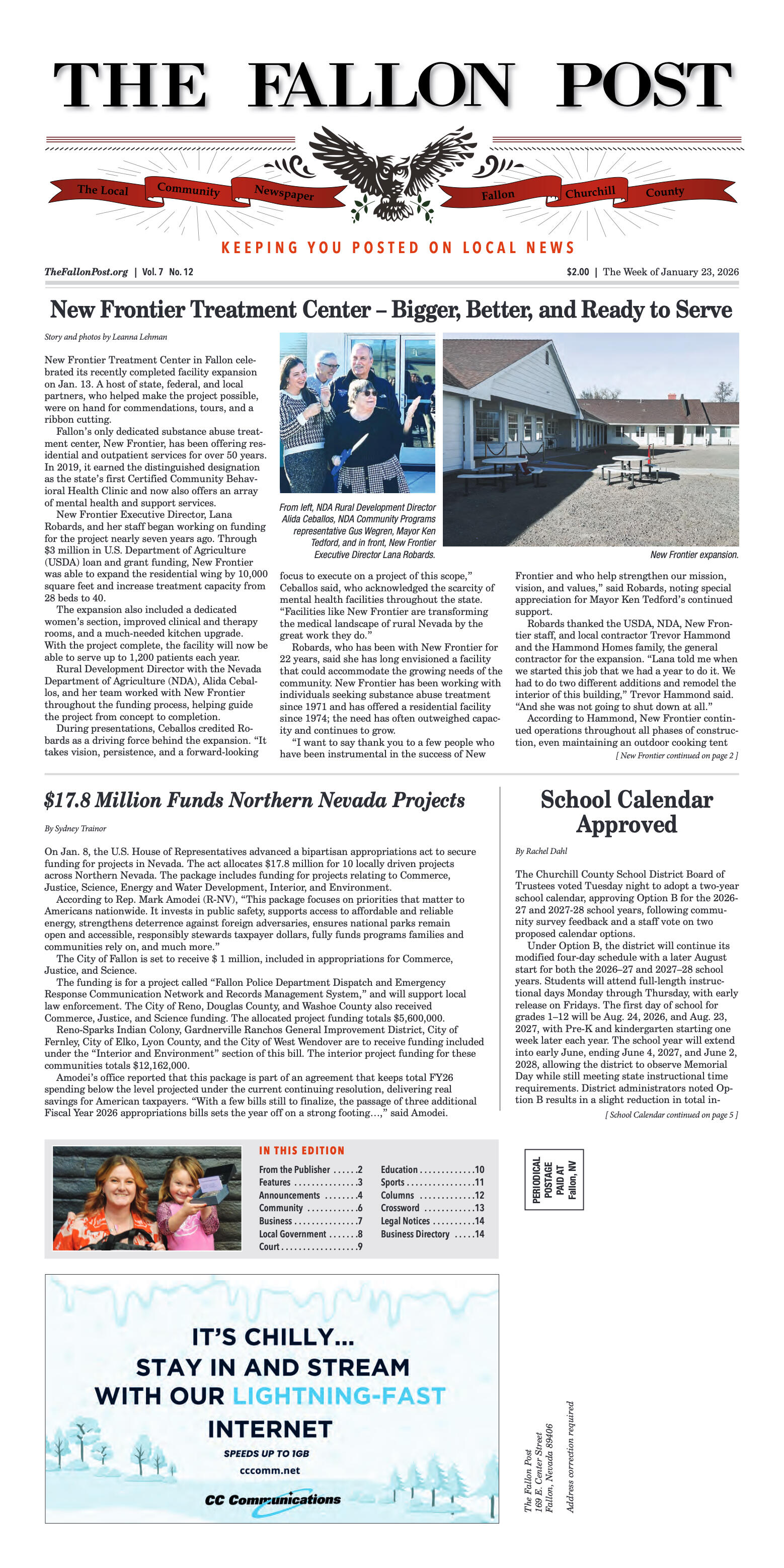

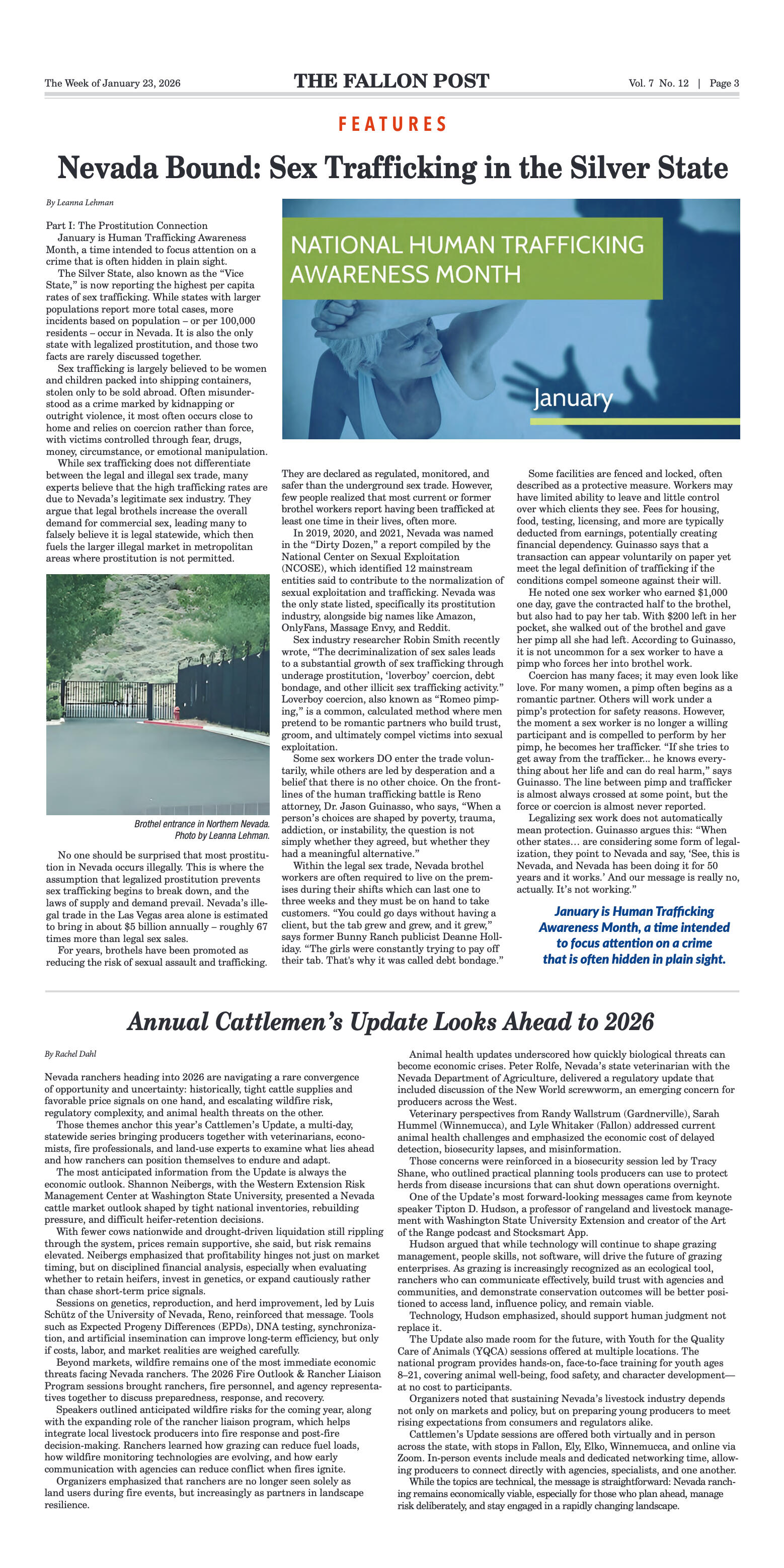
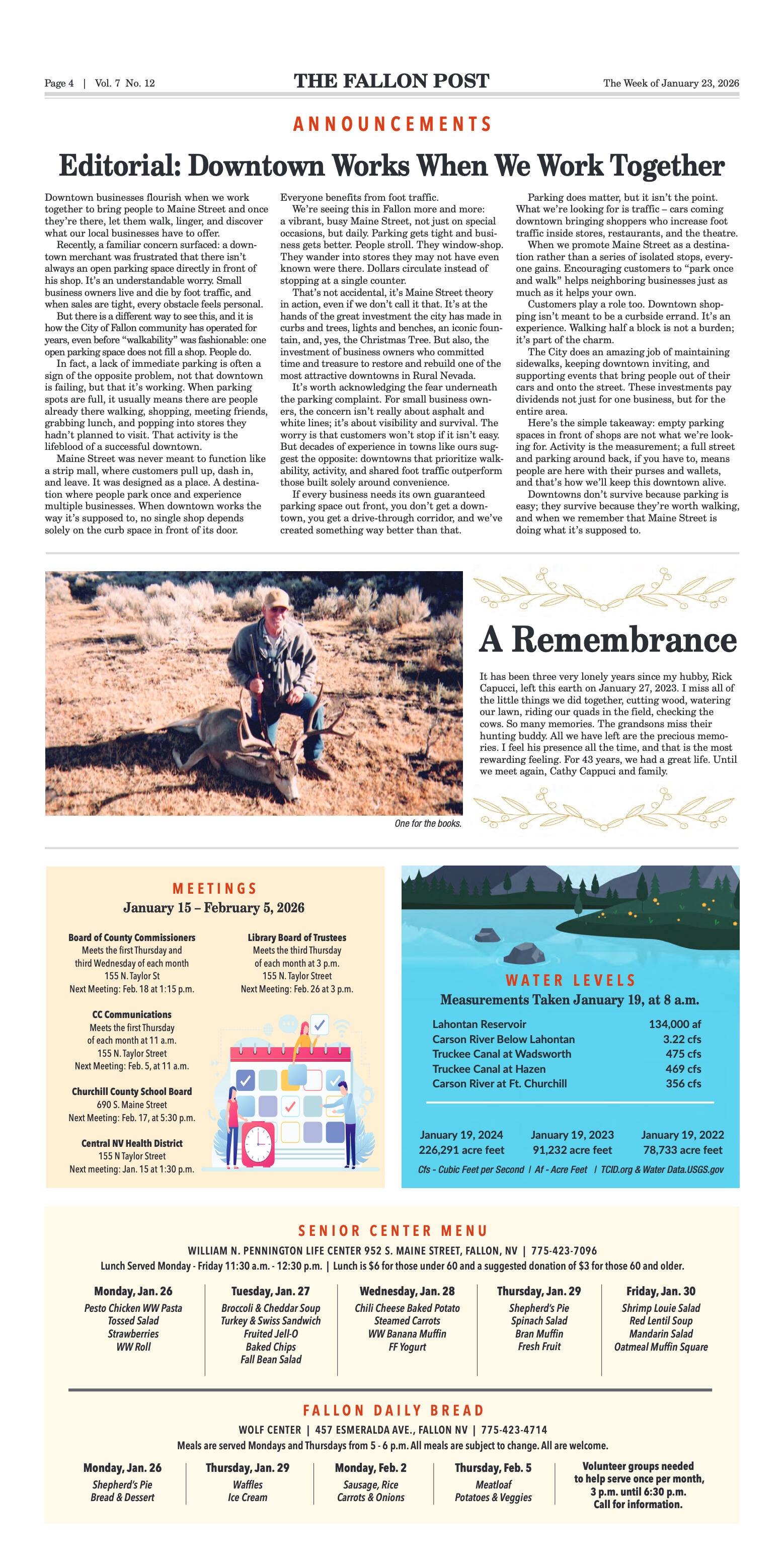
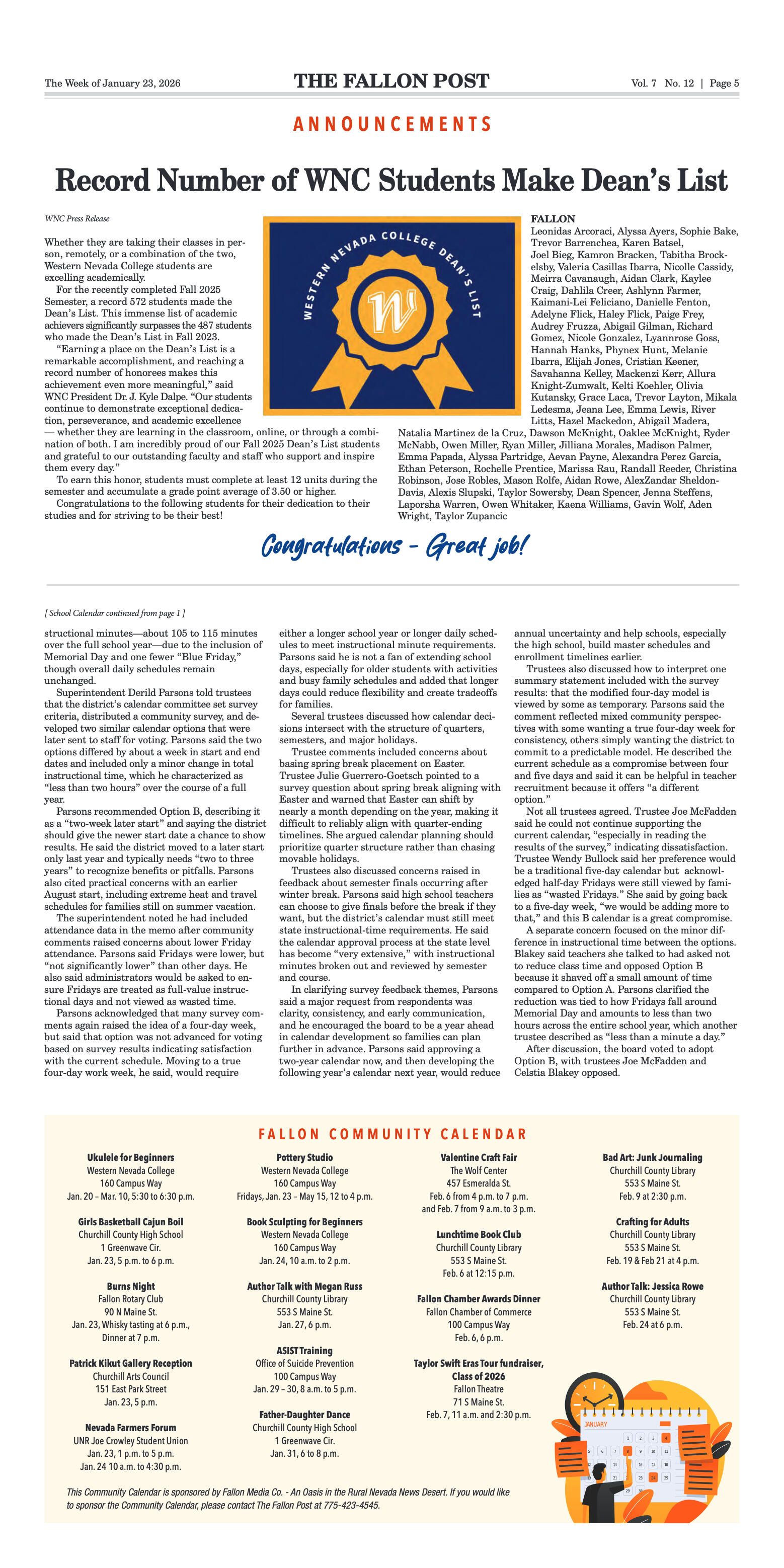
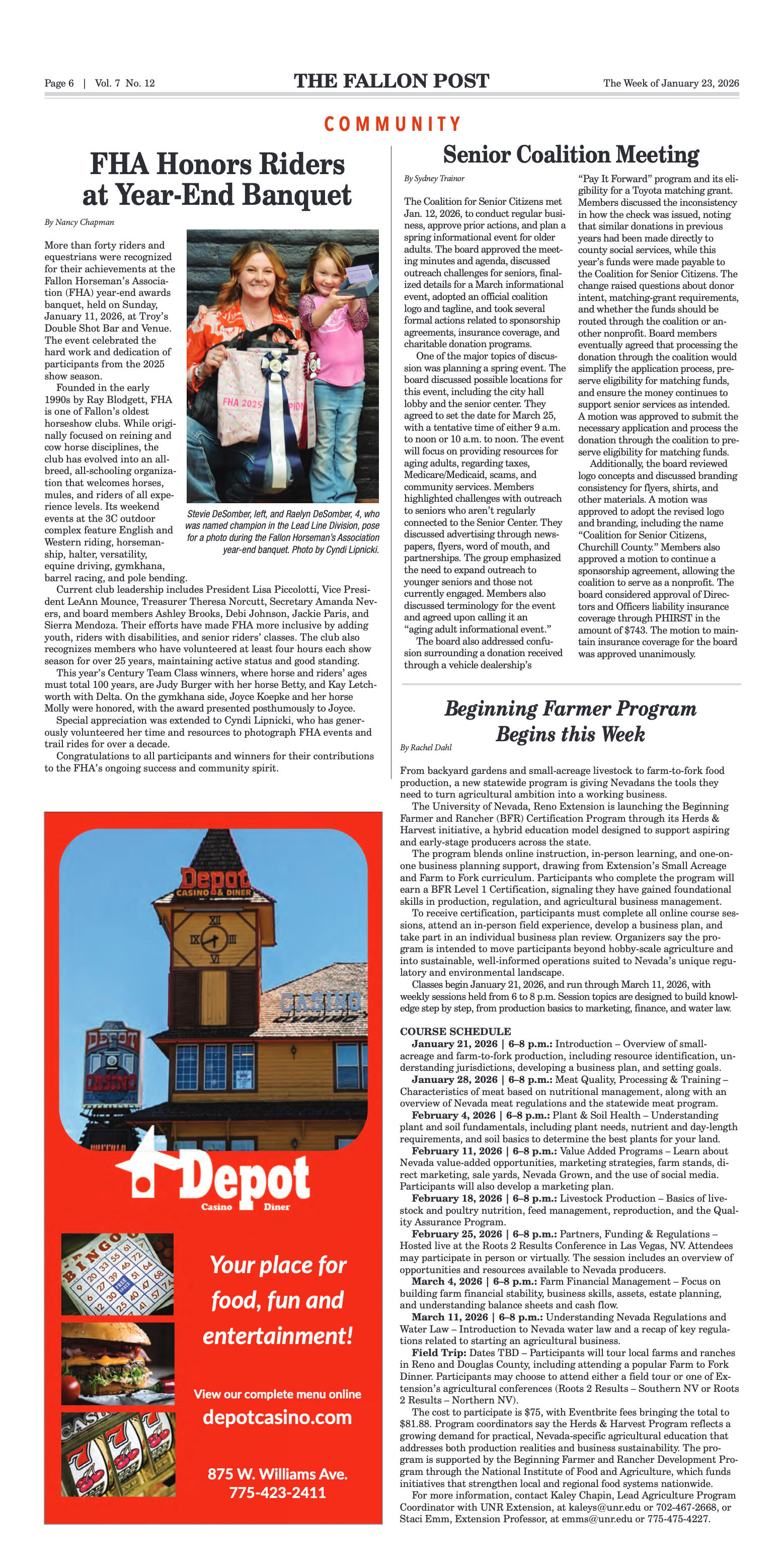
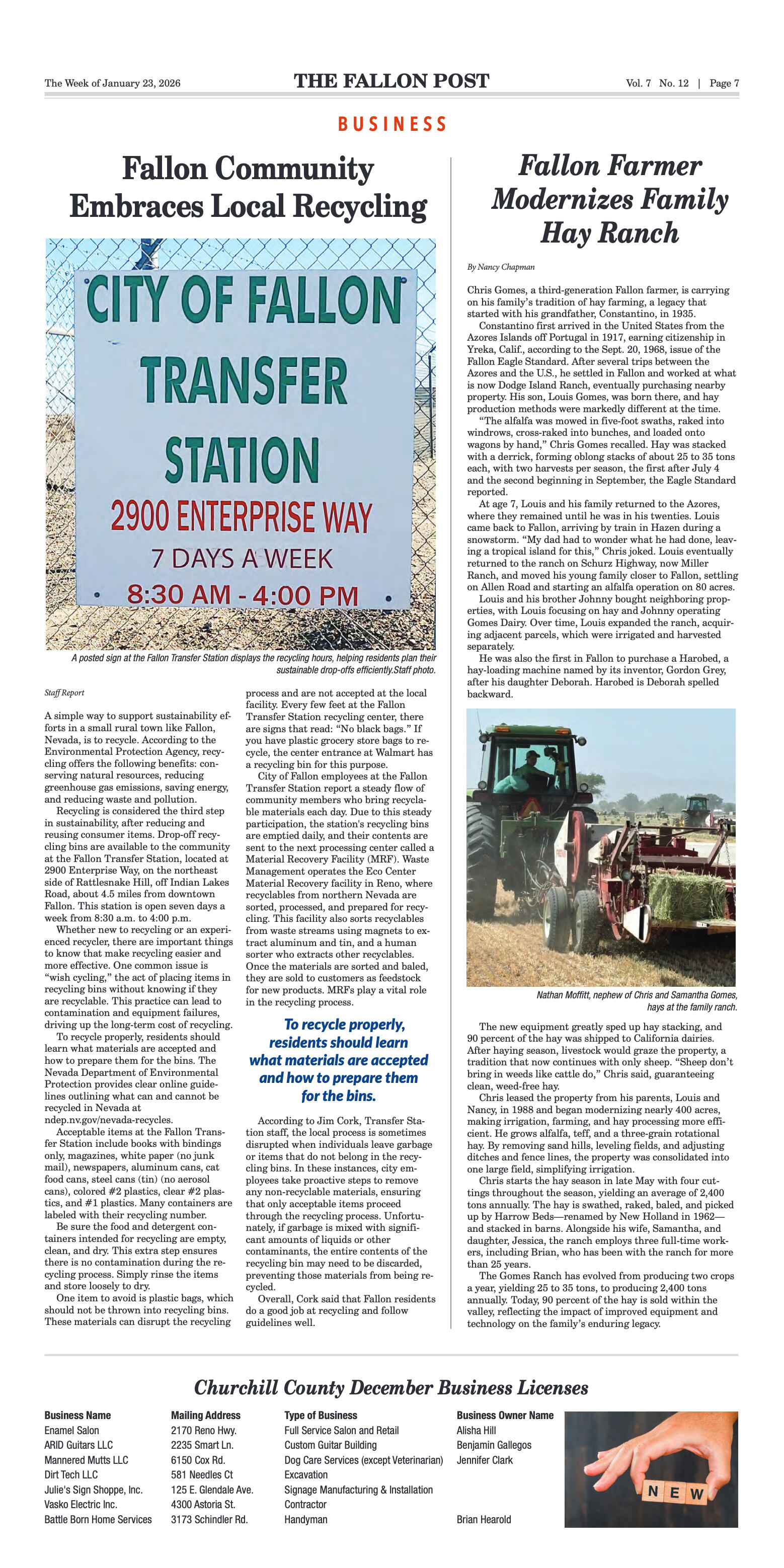
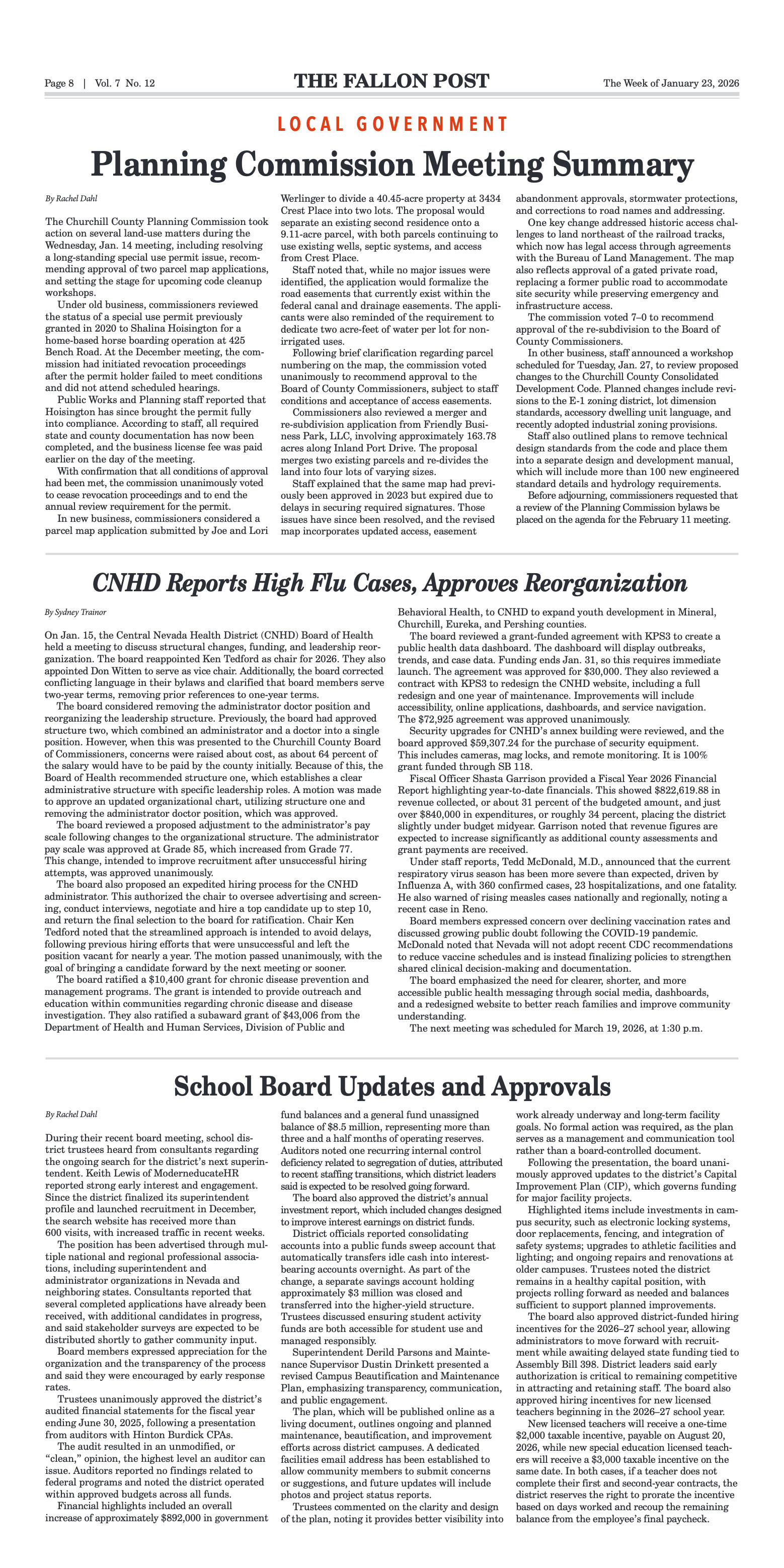
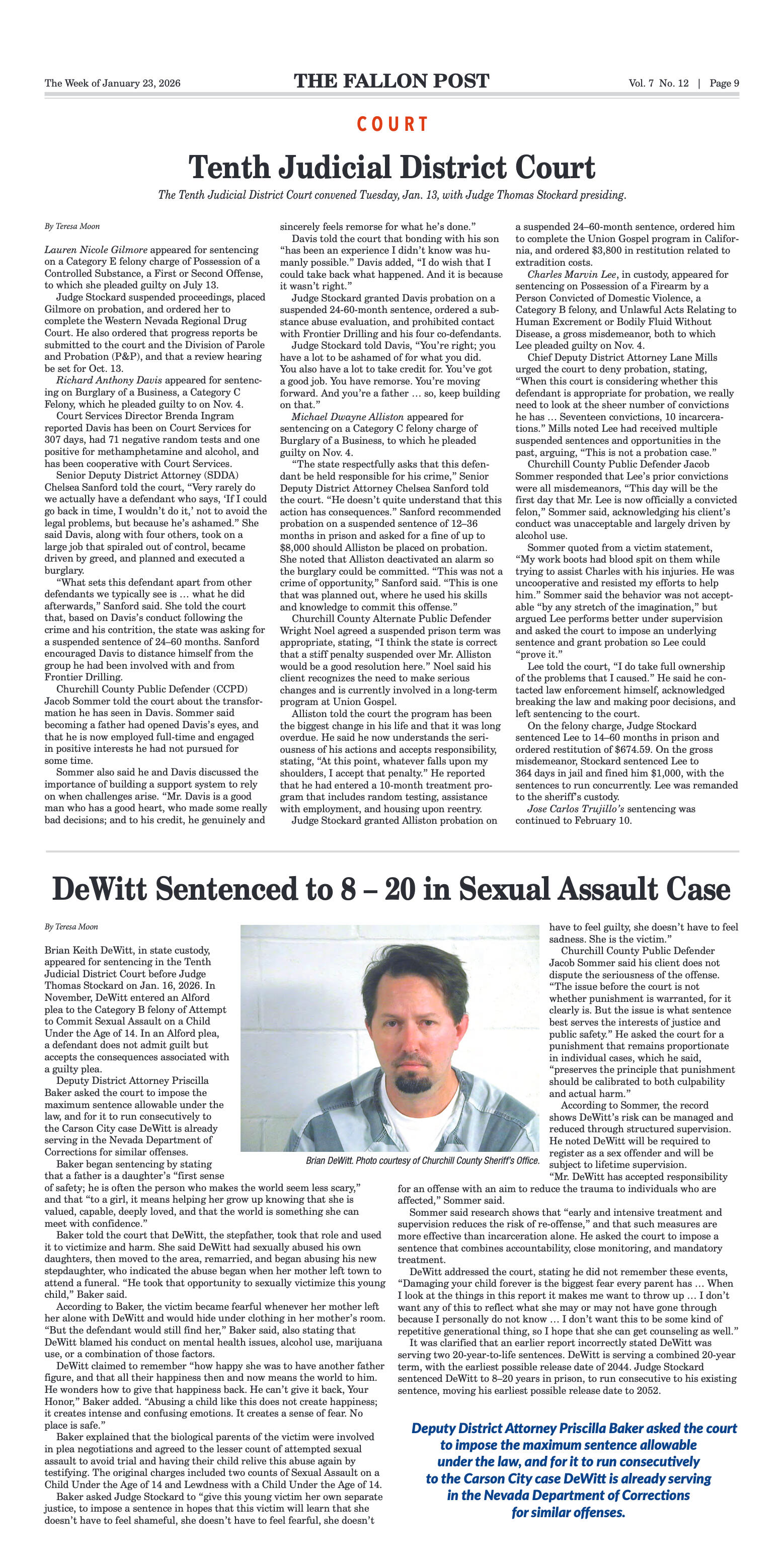
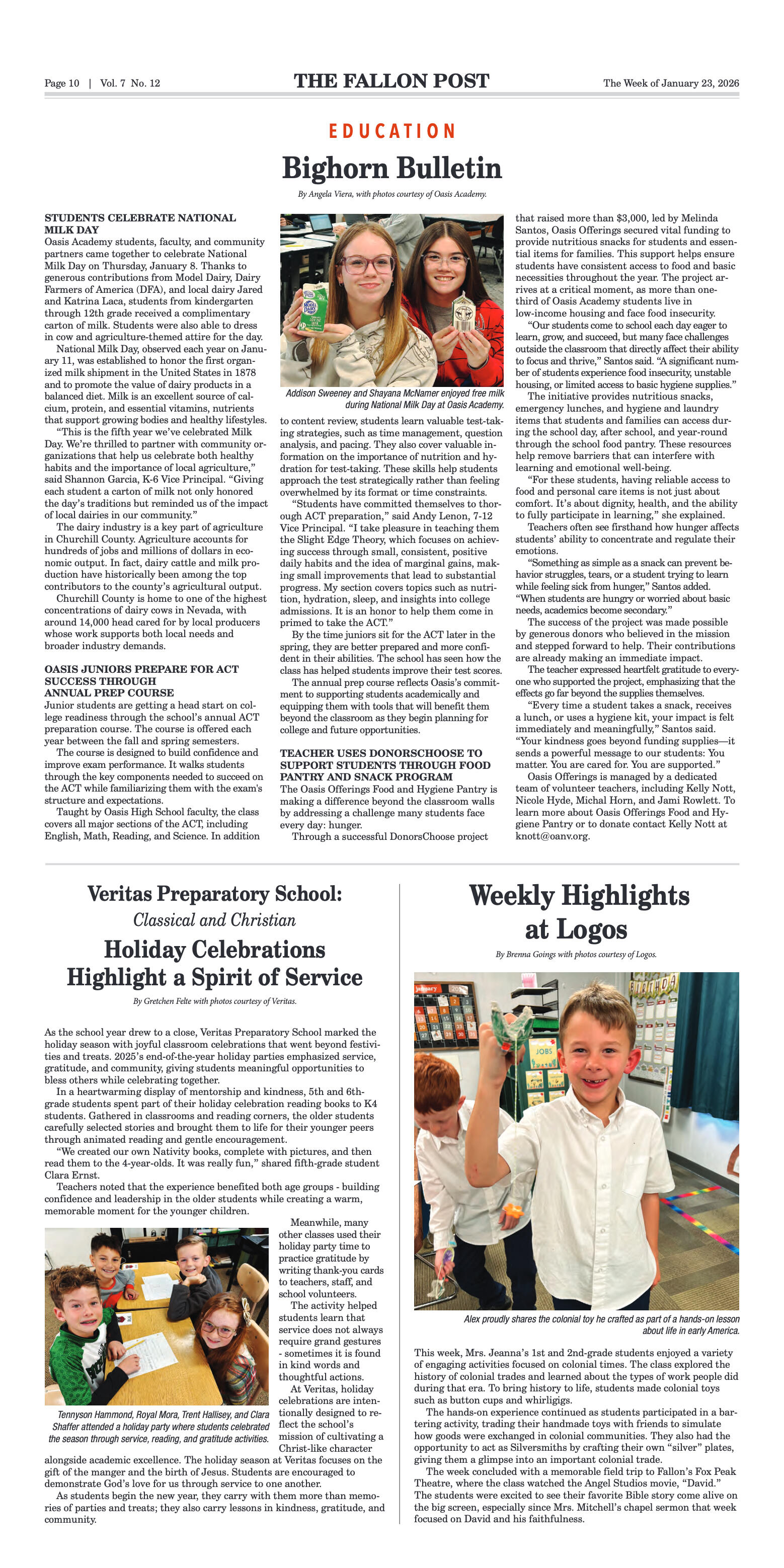
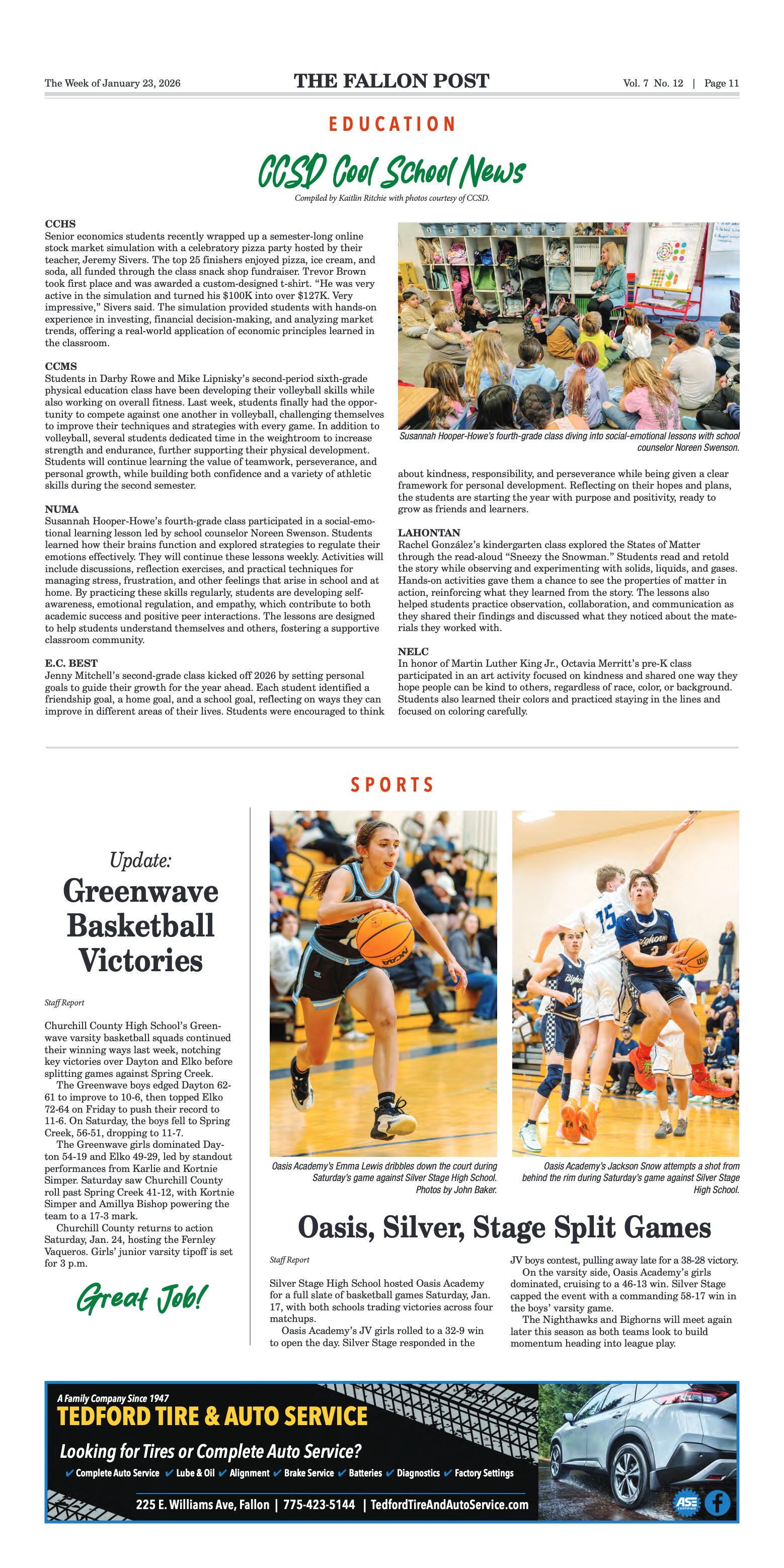
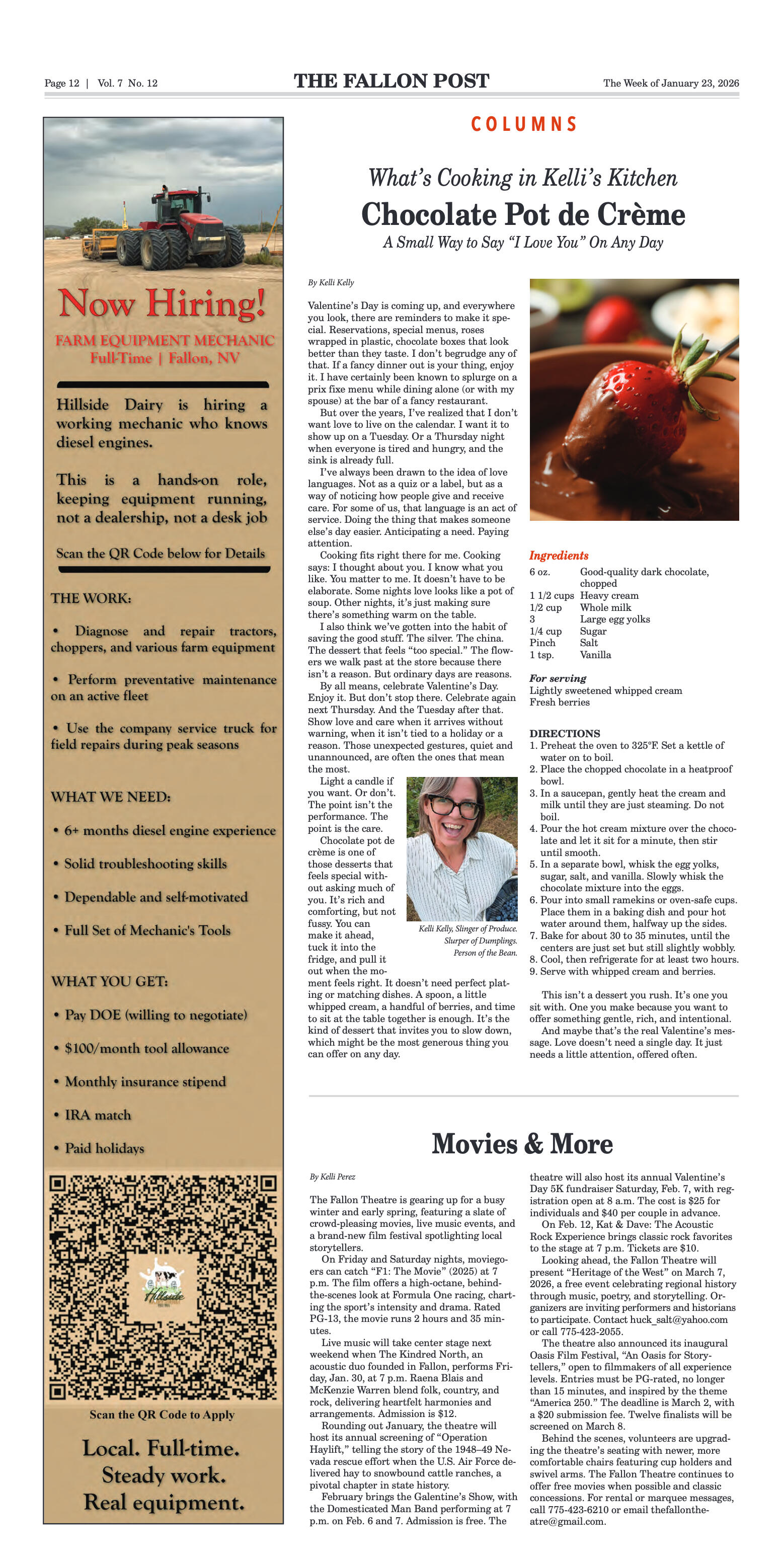

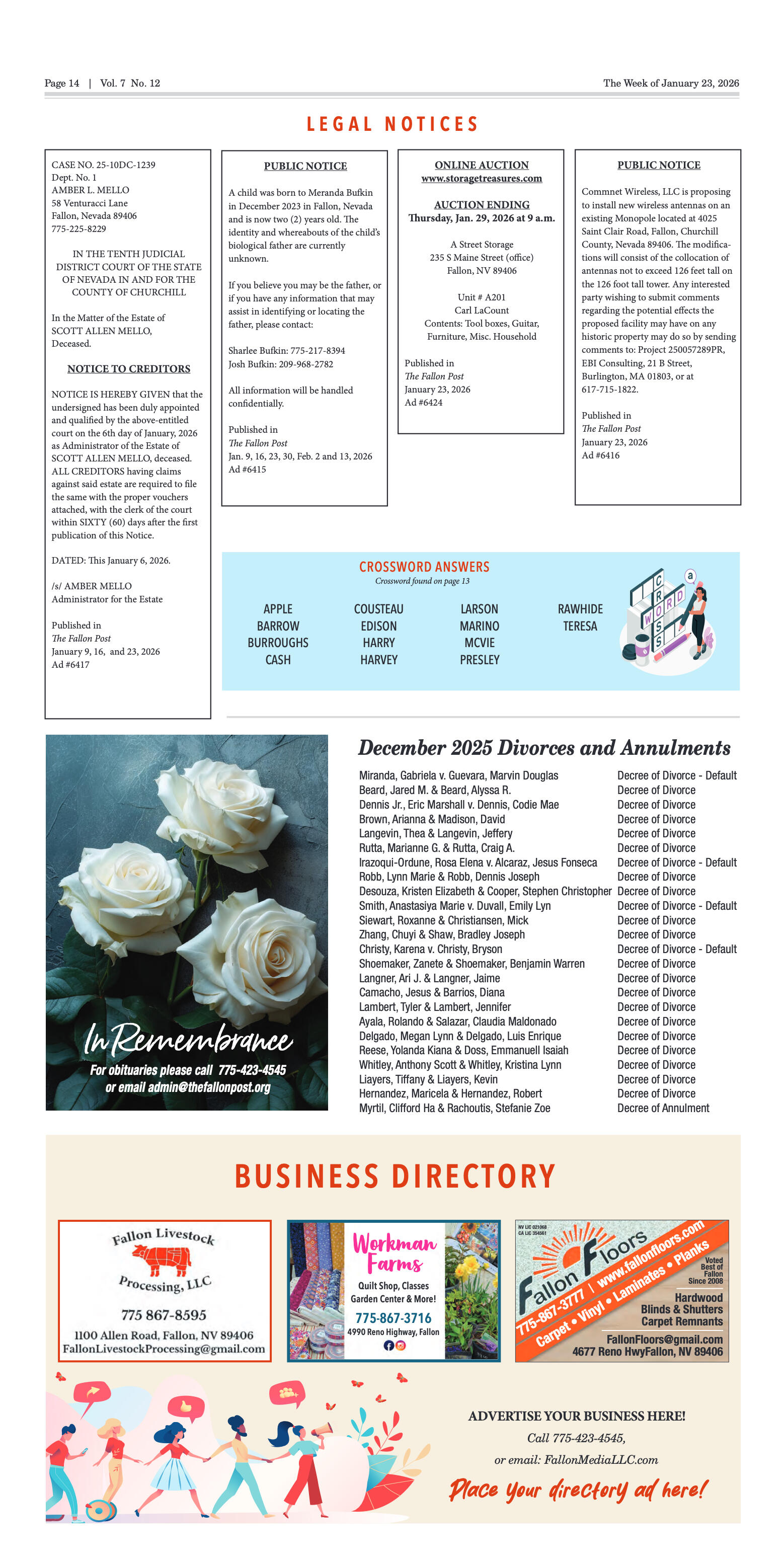

























Comment
Comments